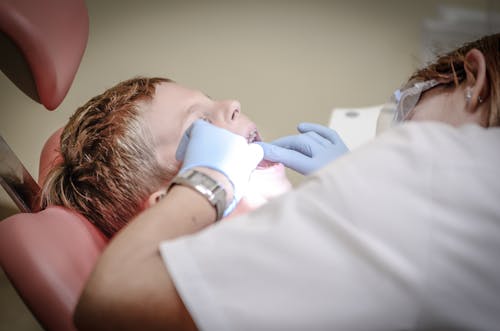The Hidden Truths about Child's Dental Implants Considerations
Child's dental implants considerations entail more than just the procedure itself. Factors like emotional readiness, social impacts, and technological advancements significantly influence the decision-making process. Parents must navigate these complexities to ensure that implants serve their child's needs effectively and compassionately.
Emotional Readiness and Child's Dental Implants Considerations
One of the multifaceted child's dental implants considerations includes the child's emotional readiness. Children may experience anxiety related to dental procedures, which can affect their willingness to pursue implants. It is vital for parents to communicate openly with their children about the process, alleviating fears and fostering a sense of understanding. Preparing the child through educational resources such as books or videos on dental implants can empower them. Creating a supportive environment that encourages questions enables children to feel more involved in their oral health journey. Consequently, emotional readiness plays a pivotal role in ensuring a successful implantation process.
Social Impact of Dental Implants on Children
The social impact of dental implants is another crucial consideration that parents should factor into their decision-making. Missing teeth can contribute to social stigma or bullying, which can dramatically affect a child's self-esteem. By opting for dental implants, parents can help their children maintain their confidence and social interactions. Children's mental health is profoundly influenced by their physical appearance, and dental implants can mitigate feelings of insecurity. The decision to choose implants can, therefore, uplift a child's social experiences and improve their overall quality of life. Parents must weigh these social implications when evaluating child's dental implants considerations.
Technological Advancements in Dental Implants
Technological advancements have significantly transformed child's dental implants considerations. Innovations, such as minimally invasive techniques and advanced biocompatible materials, have enhanced the safety and effectiveness of dental implants. These developments not only minimize recovery times but also improve success rates, making implants more accessible for children. Additionally, understanding these technological advancements can imbue parents with confidence when deciding on dental implants. Staying informed about the latest trends and breakthroughs presents parents with the right tools to evaluate all options comprehensively.
The Role of Family Support
Family support plays an integral role in navigating child's dental implants considerations. The encouraging presence of family can provide emotional comfort and foster resilience in children facing dental procedures. Parents can involve siblings in supportive roles, engaging them to create a united front. Such involvement can ease any anxiety by normalizing the experience, which reflects positively on the child’s mindset. Furthermore, shared experiences can strengthen family bonds amidst dental challenges. Enabling a supportive environment is essential to achieving a smooth dental implant experience for children.
Future Dental Needs: Planning Ahead
Planning for future dental needs is vital within child's dental implants considerations. Children may experience changes in their dental situation as they grow, necessitating ongoing evaluations and possible adjustments to implants. Maintaining open communication with dental professionals about future needs can facilitate proactive approaches, allowing families to manage dental care effectively over time. Additionally, parents should ensure that their children understand the significance of lifelong dental habits and the ongoing nature of dental care. By prioritizing future needs early on, parents can set their children on a path to long-term oral health success.
Conclusion: Making Informed Choices
In conclusion, making informed choices regarding child's dental implants considerations requires a holistic approach. Evaluating emotional readiness, social impacts, technological advancements, and the role of family support empowers parents to guide their children effectively through their dental journey. By prioritizing these considerations, parents can ensure that dental implants serve not only functional needs but also enhance their child's quality of life.
